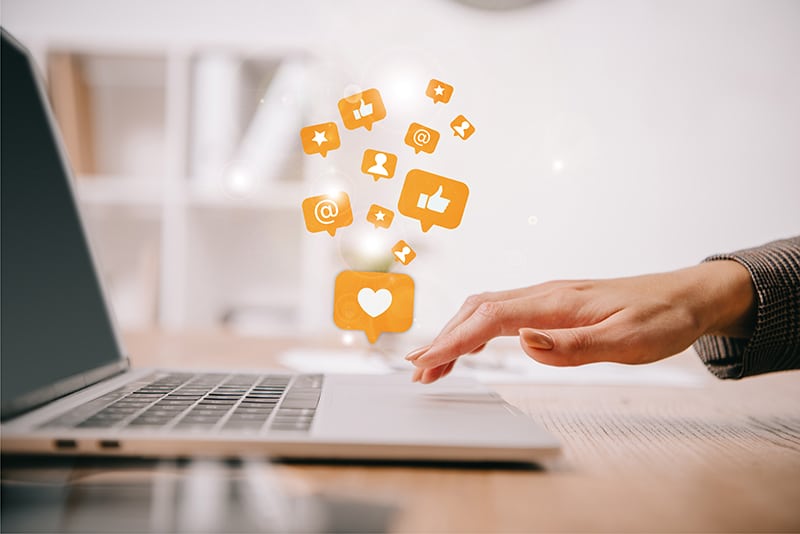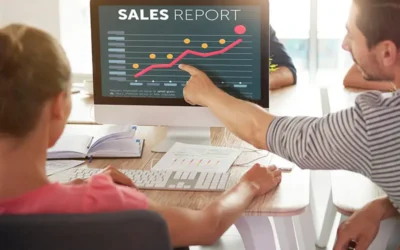A simple Facebook post regarding your chronic, occupational migraine might be more valuable to medical researchers than a detailed survey or full-blown research! Yes. A quick social media post that may seem irrelevant for you, could be silently contributing towards the next big leap in healthcare data analytics.
Welcome to the world of web—particularly social media—where tons of valuable data is created every fleeting moment, that are left underutilized. For example, on Facebook, more than a billion stories are shared each day.
While for most companies, social media platforms are only meant for communication and posturing, a few others have realized the massive, untapped goldmine of medical data mining lying in wait. Companies that successfully mine the flood of data generated on social media and use them to make informed decisions have a big advantage over those that do not.
Let’s now explore how this fascinating mix of social media data mining in healthcare and artificial intelligence is transforming hashtags and comments into life-saving data points, thereby reshaping how we diagnose, predict and cure diseases.
What Is Social Media Data Mining in Healthcare?
Alright, let’s break it down.
Social media data mining is the process of extracting and assessing information from social media platforms like Twitter, Facebook, Reddit, Instagram and even Pinterest. It’s about scanning millions (sometimes even billions!) of posts, comments, hashtags to pull and even predict relevant patterns, trends, and insights.
In healthcare, this means tracking mentions of symptoms, medications, hospital experiences, mental health struggles, or even opinions on public health policies.
Why does this matter? Because people are brutally honest online. You’re more likely to post about feeling sick than call a survey center. You’re most likely to post about a positive experience at a healthcare facility (with even more chances to post about a bad one!) That raw, unfiltered honesty is an absolute goldmine for stakeholders in predictive healthcare technologies and data-driven decision-making.
How Social Listening Can Change the Healthcare Industry
The healthcare industry is now listening, and it’s a really good thing. See how social listening tools is changing the game:
- Predicting Outbreaks Before They Go Mainstream
I’m pretty sure you haven’t forgotten about the early COVID 19 days. Back then, researchers found unusual spikes in symptom-related tweets/posts, before official case numbers caught up. Tracking disease outbreaks through social media becomes an early-warning system.
By monitoring patterns in geotagged posts like, “fever in Brooklyn,” “can’t taste anything in Madrid,” public health agencies were able to predict trends and intervene sooner.
Platforms like HealthMap and BlueDot are already doing this, combining social data with AI to identify and predict outbreaks on a global scale. Think of it as the CDC, but with a Wi-Fi connection and better memes!
- Social Listening for Mental Health Monitoring
You can’t always see mental illness; however you can sometimes read it.
AI tools are now trained to evaluate tone, choice of words, posting frequency, and even emojis used to assess mental health trends. A dip in positivity in recent posts, late-night activity, or frequent mentions of stress and anxiety can trigger alerts.
Universities and startups alike are building apps that can identify potential risks for depression, anxiety, and suicidal thoughts; thereby offer timely help without invading their privacy—an important use case of AI in healthcare.
- Monitoring Public Sentiment about Drugs and Treatments
Here’s a crazy stat: Almost 40% of people research health issues on social media before seeing a doctor.
And, there’s more: they review medications, side effects, and treatments online as well. Mining this data helps healthcare providers understand how drugs are really performing “in the wild,” outside controlled clinical trials.
It’s a real-time feedback loop that enables pharmaceutical companies to adjust recommendations or even improve product formulations.
- Fighting Misinformation (One Post at a Time)
We’ve seen it (or still seeing it): the miracle detox teas, anti-vaccine propaganda, and “cures” involving some wildflower-tree root concoctions.
Social media mining helps health organizations identify and counteract misinformation in a jiffy. By tracking trending health myths, they can roll out targeted awareness campaigns before the wrong info does real damage.
The WHO and CDC are increasingly relying on social listening tools to fight “infodemics”, which basically are outbreaks of misleading info that spread faster than the viruses themselves.
What Is the Role of AI in Social Media Data Mining?
Let’s get one thing straight: Without artificial intelligence (AI), social media mining would be akin to searching for a rare bush herb in the Amazon rainforest—blindfolded.
AI acts as the brain, strategizing and executing the operation. It leverages advanced tech and processing for:
- Natural Language Processing (NLP): Understand slang, typos, abbreviations, and context in human language.
- Sentiment Analysis: Gauge emotional tone and public mood.
- Image Recognition: Analyze visual content, like random photos or screenshots of test results.
- AI Search Capabilities: No, these aren’t your average Google searches. AI-driven search engines scan through vast, disorganized social data to pull structured, actionable insights; in a matter of seconds.
AI search doesn’t just find keywords. It interprets intent, understands context, and learns from feedback, making it a powerhouse for healthcare providers, researchers, and policy makers.
Think of it as having a super-intelligent intern who works 24/7, never sleeps, and can read every health-related tweet in history. (Without asking for coffee breaks.)
Is Social Media Data Mining the Future of Healthcare?
For real! We’re now rapidly moving from a reactive healthcare model (waiting until people get sick) to a proactive and predictive one; all thanks to insights mined from what people post online.
Here’s a glimpse of what the future might look like:
- Hospitals will use social trends to prepare for incoming disease spikes.
- Insurers will evaluate risk factors using anonymized digital behavior.
- Governments will build better policies based on real-time sentiment analysis.
- Doctors will personalize treatments by understanding what’s working (or not) for patients.
And the kicker? Well, it’s all already happening! We’re just scratching the surface. By 2030, AI could end disease in the world, as predicted by a Nobel prize winner.
What about User Privacy & Confidentiality?
This is a fair concern, and a hot topic up for addressal.
Responsible data mining in healthcare always prioritized anonymization, consent, and ethical standards. It is important to understand that data mining does not mean spying on your private DMs, as most mining focuses on general posts and aggregate trends, not individual users.
Still, it’s vital for tech developers, healthcare organizations, and governments to build transparent, privacy-respecting systems as this space grows.
Why Collaborate with Managed Outsource Solutions?
We know how mining data, training AI, and managing social sentiment dashboards can be extremely overwhelming.
That’s where MOS steps in.
We’re not just another BPO provider, but we’re your healthcare transformation partner. We take care of:
- Handling large-scale data annotation projects for AI training
- Providing top-tier back-office support for healthcare tech startups
- Managing 24/7 patient communication channels
Powering up your R&D with accurate, real-time social insights.
MOS delivers smart, scalable solutions that let you focus on the big picture, thereby contributing towards saving lives and shaping the future.
Social media is not just a place to post memes and photos; it’s also a powerful tool that is rapidly redefining how we approach healthcare. From predicting outbreaks to understanding patient experiences and tracking public sentiment, the insights hidden in online data are driving smarter, faster, and more proactive health decisions. With AI and data mining leading the charge together, the future of healthcare is more connected and responsive than ever.
And with a right partner like MOS by your side, transforming that raw social data into meaningful action has never been easier.




